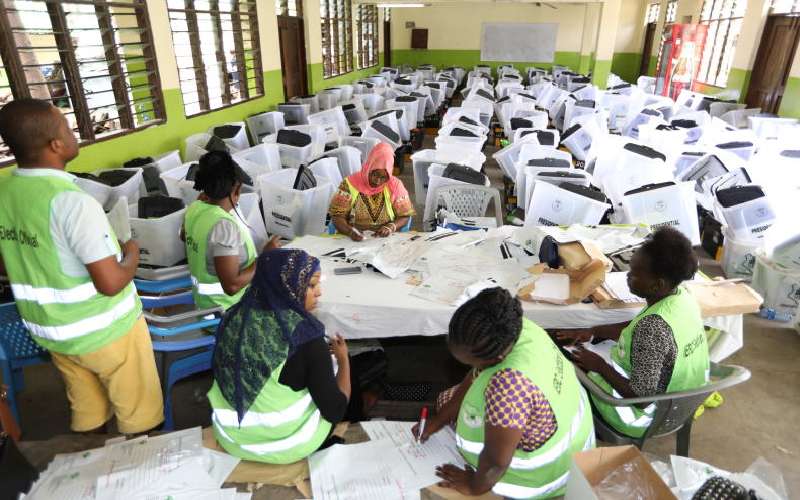×
The Standard e-Paper
Stay Informed, Even Offline

Ballot boxes in a hall at Tudor Secondary School in Mombasa County on October 25, 2017, as IEBC clerks sort out papers ahead of the repeat presidential election. [Maarufu Mohamed,Standard]
An ethnically-charged environment, mistrust among political players, increased use of technology and ballot papers with numerous security features are some of the factors that make elections expensive.